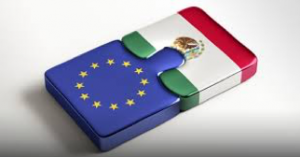Dear readers,
Good traditions are to be kept, so the annual ranking by KSLR EU law Blog of the top 10 events in EU law.
Here you may find our list of the most topical EU-law events in 2018:
10) Jean Claude Juncker’s State of the Union Address. Borrowed from the United States, the tradition of the President of the Commission giving an annual speech in front of the European Parliament was inaugurated by the Lisbon Treaty. This year, Juncker’s last speech as president of this Commission – due to be renewed after the 2019 elections of the European Parliament – focused on EU’s global responsibility, security, Brexit and Africa.
9) Greece is out from the bail-out. On 20 August 2018, Greece ended its 8 years bailout programme, the world biggest ever financial rescue programme.
8) (EU)or personal data is safe. On 25 May 2018, the General Data Protection Regulation entered into force. Novelties introduced by the GDPR are, among others, more dissuasive fines for violations of data protection rules and broader rights for data subjects.
7) Are investment tribunals part of the EU club under Article 267 TFEU? The Achmea judgment has shed further light on the relationship between the investment tribunal system and the ECJ under Article 267 TFEU. The ECJ has decided that ‘Articles 267 and 344 TFEU must be interpreted as precluding a provision in an international agreement concluded between Member States […] under which an investor from one of those Member States may, in the event of a dispute concerning investments in the other Member State, bring proceedings against the latter Member State before an arbitral tribunal whose jurisdiction that Member State has undertaken to accept.’
6) A year full of (trade) agreements.
The EU-Mexico and the EU-Japan trade deals have been finalised, respectively, in December and April 2018.
5) The rule of law bites in Hungary. On 12 September 2018, the European Parliament voted a proposal calling on the Council to determine, pursuant to Article 7(1) TEU, the existence of a clear risk of a serious breach by Hungary of the values on which the Union is founded.
4) Can Polish Courts effectively protect rights granted under EU law? the LM judgment. In this judgment, the ECJ has dealt with the question of the suitability of Polish courts to adjudicate upon EU law matters, concerning, in particular, the surrender of an individual under the European Arrest Warrant, following the finding of a systemic threat to the protection of rule of law in Poland. Such an evaluation is to be carried by the executing Member State’s court.
3) Taricco continued. In the MAS judgment, the ECJ has reached a compromise between the supremacy of EU law and the protection of national fundamental values. It established that Member States shall disapply national law in the area of criminal law in conflict with Article 325 TFEU, ‘unless that disapplication entails a breach of the principle that offences and penalties must be defined by law because of the lack of precision of the applicable law or because of the retroactive application of legislation imposing conditions of criminal liability stricter than those in force at the time the infringement was committed.’
2) Good to go. On 14 November, after twenty months of negotiations, the EU and the UK conclude negotiations on the UK Withdrawal Agreement. The two parties have reached an agreement on the entirety of conditions for the UK’s withdrawal from the EU, as provided for in Article 50 TEU.
1) Hold on: the notification under Article 50 TEU can be withdrawn. The UK could stop Brexit, the full court of the European Court of Justice found in the Wightman judgment of 10 December. Delivered within less than two months from having received the request for a preliminary ruling, and the day before a very heated debate on Brexit was scheduled to take place (but later suspended) in the Commons in London, this judgment of great constitutional importance held that a Member State may withdraw unilaterally the notification given under Article 50 TEU to leave the European Union. So, what next?
Happy N(EU) Year to everyone!
The KSLR European Law Blog Editorial Team


